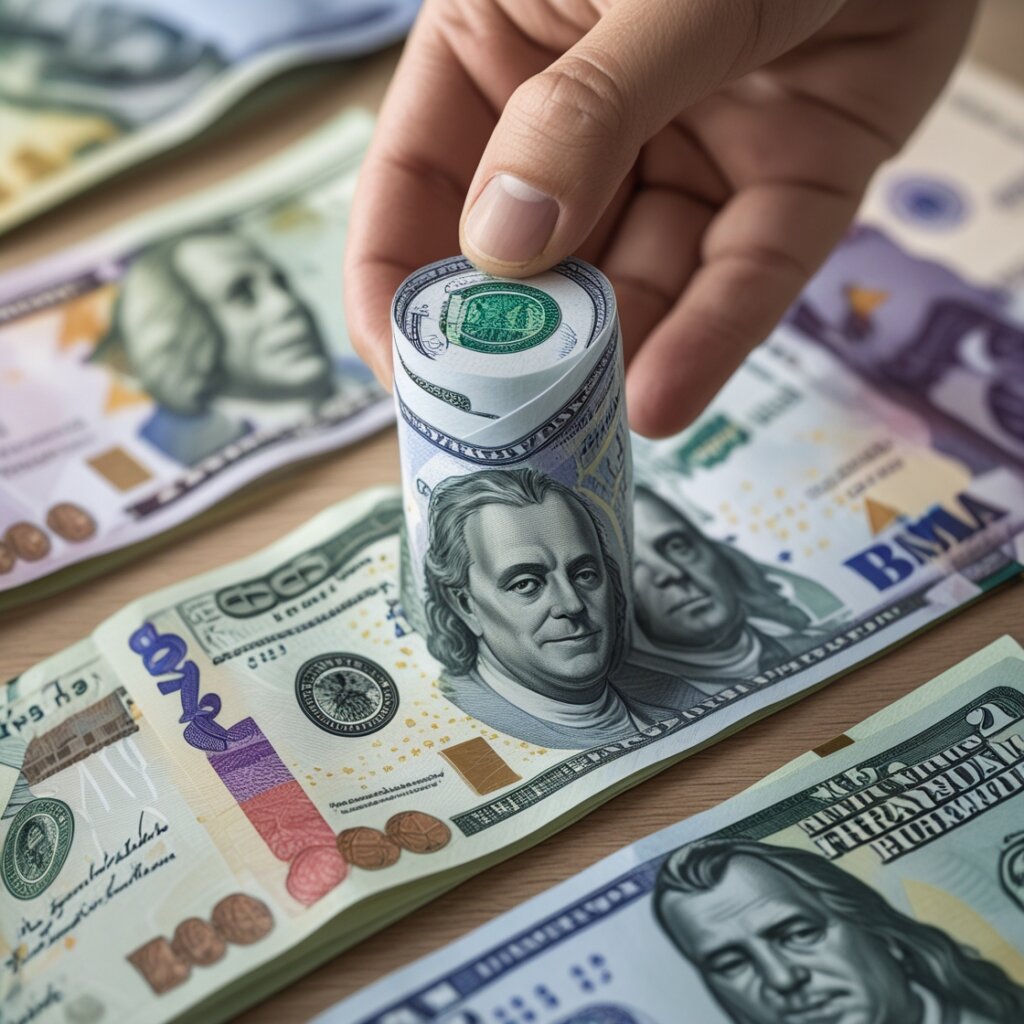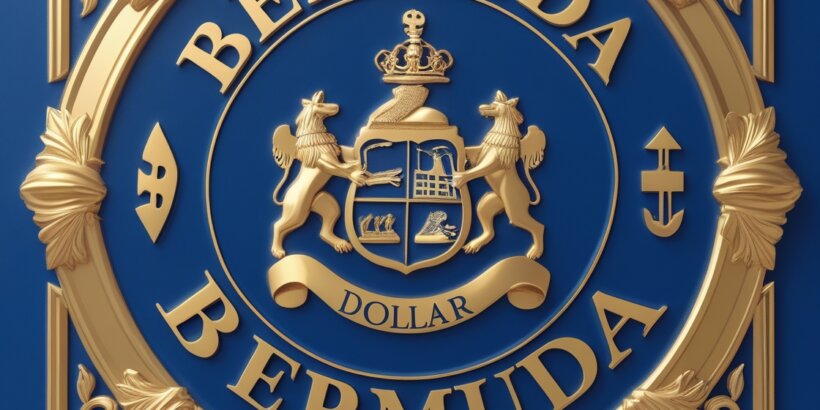Bermuda Monetary Authority
The Bermuda Monetary Authority (BMA) is the central bank and financial regulator of Bermuda. It is responsible for promoting financial stability, regulating financial institutions, and managing the island’s currency, the Bermudian dollar. The BMA also supervises and regulates banking, insurance, and securities markets, as well as provides guidance on anti-money laundering and combating the financing of terrorism. The BMA’s primary goal is to maintain a stable and secure financial system, protecting the interests of consumers and promoting economic growth in Bermuda. It operates independently, but in close coordination with international regulatory bodies.

The Bermuda Monetary Authority (BMA) plays a crucial role in maintaining the financial stability of Bermuda. As the island’s principal financial regulator, it ensures the smooth operation of banks, insurance firms, and digital asset businesses. But what exactly does the BMA do, and why is it so important? Let’s dive into the details.
What is the Bermuda Monetary Authority (BMA)?
The Bermuda Monetary Authority is the regulatory body responsible for overseeing Bermuda’s financial sector. It regulates banks, insurance companies, investment businesses, and digital assets while also managing Bermuda’s currency issuance.
History and Establishment of BMA
Established in 1969, the BMA was created to manage and regulate Bermuda’s monetary and financial systems. Over the years, it has grown in scope, now covering areas like anti-money laundering and cybersecurity for financial institutions.
Functions and Responsibilities of BMA
Regulation of Financial Institutions
The BMA ensures that banks, investment firms, and financial entities operate within a stable and secure framework, maintaining investor trust.
Supervision of the Insurance Industry
Bermuda is a global insurance hub, and the BMA plays a pivotal role in regulating insurers, ensuring they meet capital requirements and manage risks effectively.
Issuance of Bermuda Currency
As the sole issuer of Bermuda’s currency, the BMA ensures that the Bermuda dollar remains stable and properly managed.
Anti-Money Laundering (AML) and Counter-Terrorism Financing (CTF) Policies
To combat financial crimes, the BMA enforces strict AML and CTF regulations, requiring financial institutions to maintain compliance.
Investor Protection and Financial Stability
The authority works to protect investors from fraud and financial instability, maintaining Bermuda’s reputation as a secure financial center.
Structure of the Bermuda Monetary Authority
The BMA operates with a board of directors, an executive team, and various departments specializing in regulation, compliance, and financial stability.
Regulatory Framework and Compliance Requirements
Licensing and Supervision
All financial institutions must obtain a license from the BMA and comply with its supervision guidelines.
Capital Requirements
Companies must maintain a certain level of capital to ensure they can cover potential losses and risks.
Risk Management Guidelines
The BMA enforces risk management strategies to protect Bermuda’s financial market from crises and downturns.
BMA’s Role in International Finance
Bermuda is a global financial center, and the BMA ensures compliance with international regulatory standards, making it a trusted jurisdiction for financial services.
How BMA Supports Bermuda’s Economy
By maintaining financial stability, regulating key industries, and encouraging investment, the BMA helps strengthen Bermuda’s economic growth.
Bermuda’s Currency and BMA’s Role in Its Stability
The BMA ensures that Bermuda’s currency remains pegged to the US dollar, maintaining economic confidence and trade stability.
Digital Assets and Cryptocurrency Regulation by BMA
As digital assets grow in popularity, the BMA has introduced regulations to oversee cryptocurrency exchanges, ensuring compliance with financial laws.
Challenges and Future Outlook of BMA
The BMA faces challenges like evolving financial technology, cybersecurity threats, and international regulatory pressures. However, it continues to adapt and enhance Bermuda’s financial framework.
BMA vs. Other Monetary Authorities: A Comparison
Compared to other monetary authorities, the BMA is unique due to its role in the global insurance market and its regulatory approach to digital assets.
How to Contact and Work with BMA
Businesses and individuals can contact the BMA through its official website, email, or direct office visits for regulatory inquiries and compliance assistance.
What does the Bermuda Monetary Authority do?
The Bermuda Monetary Authority (BMA) is the financial regulator for Bermuda. It is responsible for supervising, regulating, and overseeing the financial services sector in Bermuda, including banks, insurers, investment businesses, and digital asset firms. The BMA also issues Bermuda’s currency and ensures financial stability.
Key Functions of the BMA:
- Regulation & Supervision – Oversees financial institutions to ensure compliance with laws and best practices.
- Anti-Money Laundering (AML) & Counter-Terrorism Financing (CTF) – Enforces policies to prevent financial crimes.
- Insurance & Reinsurance Oversight – Regulates Bermuda’s large insurance and reinsurance market.
- Digital Assets Supervision – Licenses and monitors cryptocurrency and blockchain-based businesses.
- Issuing Currency – Manages the issuance of Bermuda’s currency and maintains monetary stability.
- Financial Stability & Risk Management – Assesses risks to Bermuda’s financial system and takes preventive actions.
The BMA plays a crucial role in ensuring that Bermuda’s financial sector remains stable, secure, and attractive to international businesses.
Who is the CEO of Bermuda Monetary Authority?
As of March 2025, the Chief Executive Officer (CEO) of the Bermuda Monetary Authority (BMA) is Craig Swan. Mr. Swan assumed the role of CEO on October 1, 2021, succeeding Jeremy Cox. Prior to his appointment as CEO, Mr. Swan served as the Deputy CEO of the BMA, having joined the Authority in 2006.
In his capacity as CEO, Mr. Swan oversees the BMA’s supervisory activities across various sectors, including banks, insurance companies, trust companies, digital assets, and investment businesses. He also serves as an Executive Director on the BMA’s Board of Directors.
Under Mr. Swan’s leadership, the BMA continues to uphold its mandate of ensuring financial stability and effective supervision within Bermuda’s financial services sector.
Where is Bermuda Monetary Authority?
The Bermuda Monetary Authority (BMA) is located in Hamilton, Bermuda, the capital city of the island.
Address:
Bermuda Monetary Authority
BMA House, 43 Victoria Street
Hamilton HM 12
Bermuda
The BMA operates as Bermuda’s financial regulator and plays a key role in overseeing the island’s banking, insurance, digital assets, and investment sectors.
What is the name of Central Bank of Bermuda?
Bermuda does not have a traditional central bank like many other countries. Instead, the Bermuda Monetary Authority (BMA) functions as the island’s de facto central bank.
Key Central Banking Roles of the BMA:
- Issues and regulates Bermudian currency
- Manages monetary stability
- Oversees financial institutions
- Implements anti-money laundering (AML) regulations
- Supervises digital assets and fintech businesses
Although the BMA acts as Bermuda’s financial regulator and currency issuer, Bermuda does not have an independent monetary policy, as its currency (the Bermudian dollar, BMD) is pegged 1:1 to the US dollar.
Does Bermuda have its own currency?
Yes, Bermuda has its own currency, called the Bermudian dollar (BMD).
Key Facts About the Bermudian Dollar (BMD):
- Symbol: $
- Code: BMD
- Pegged to USD: The Bermudian dollar is fixed at a 1:1 exchange rate with the US dollar (USD).
- Circulation: Both BMD and USD are widely accepted in Bermuda, but change is usually given in Bermudian dollars.
- Issued by: The Bermuda Monetary Authority (BMA)
Although Bermuda has its own currency, it is not used outside Bermuda, as it is not widely traded internationally.
Who regulates banks in Bermuda?
Banks in Bermuda are regulated by the Bermuda Monetary Authority (BMA).
Key Responsibilities of the BMA in Banking Regulation:
- Licensing and Supervision – The BMA grants banking licenses and ensures banks comply with Bermuda’s financial laws.
- Risk Management – Monitors banks to ensure financial stability and prevent risks like insolvency.
- Anti-Money Laundering (AML) & Counter-Terrorism Financing (CTF) – Enforces strict measures to prevent financial crimes.
- Consumer Protection – Ensures banks operate fairly and transparently for customers.
- International Compliance – Aligns Bermuda’s banking regulations with global standards, including Basel III guidelines.
The BMA plays a crucial role in maintaining a stable and well-regulated banking system in Bermuda.
Bermuda Monetary Authority contact:
Bermuda Monetary Authority (BMA) Contact Information
Address:
Bermuda Monetary Authority
BMA House, 43 Victoria Street
Hamilton HM 12, Bermuda
Phone:
+1 (441) 295-5278
Email:
general inquiries: enquiries@bma.bm
Website:
www.bma.bm
For specific inquiries, visit their website to find contact details for different departments.
Conclusion
The Bermuda Monetary Authority is essential in maintaining financial stability, regulating industries, and ensuring investor confidence. Its evolving role in digital assets and global finance makes it a key player in Bermuda’s economic success.
FAQs About the Bermuda Monetary Authority
1. What does the Bermuda Monetary Authority do?
The BMA regulates financial institutions, oversees the insurance sector, issues Bermuda’s currency, and enforces AML and CTF regulations.
2. How does the BMA regulate cryptocurrency?
The BMA has introduced regulatory frameworks to oversee digital assets, ensuring compliance with financial laws and investor protection.
3. Is the Bermuda Monetary Authority independent?
Yes, the BMA operates independently but collaborates with Bermuda’s government and international regulatory bodies.
4. How can a company obtain a license from the BMA?
Companies must apply for a license through the BMA’s official channels, meeting financial stability and compliance requirements.
5. Why is the BMA important for Bermuda’s economy?
The BMA ensures financial stability, protects investors, and maintains Bermuda’s reputation as a global financial center.
Headquarters: Hamilton, Bermuda
Established :20 February 1969
Chairman: Donald Scott
Central bank of Bermuda
Currency: Bermudian dollar
BMD (ISO 4217)
Website: www.bma.bm
P.O. Box 2447
Hamilton HM JX
Bermuda

